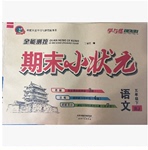题目内容
Thomas Alva Edison (爱迪生)was awarded more patents(专利) on inventions than any other American. When he died in 1931,Americans wondered how they could best show their respect for him .One suggestion was that the nation observe a minute or two of total blackout . All electric power would be shut off in homes,streets,and factories. Perhaps this suggested plan made Americans realize fully what Edison and his inventions mean to them. Electric power was too important to the country. Shutting it off for even a short time would have led to complete confusion. A blackout was out of the question.
On the day of Edison’s funeral(葬礼),many people silently dimmed their lights. In this way they honored the man who had done more than anyone else to put the great force of electricity at his countrymen’s finger tips.
1.This selection says that Thomas Edison________.
A. was the only important American inventor
B. received the first American patent
C. received more patents than any other American
D. was the first American inventor
2.People decided to honor Edison when______.
A. he made the first electric light
B. electric power was 100 years
C. the country realized electricity’s importance
D. he died in 1931
3.The suggested plan was to________.
A. turn off the lights in factories and schools
B. observe a few minutes of total silence
C. dim all electric lights
D. shut of all electricity for a short time
4.Americans fully realized what Edison’s inventions meant when they________.
A. heard of his death
B. heard of the plan to honor him
C. first used electric power
D. tried to carry out the plan
 全能测控期末小状元系列答案
全能测控期末小状元系列答案| A. | accurate | B. | punctual | C. | efficient | D. | reasonable |

